Compassion
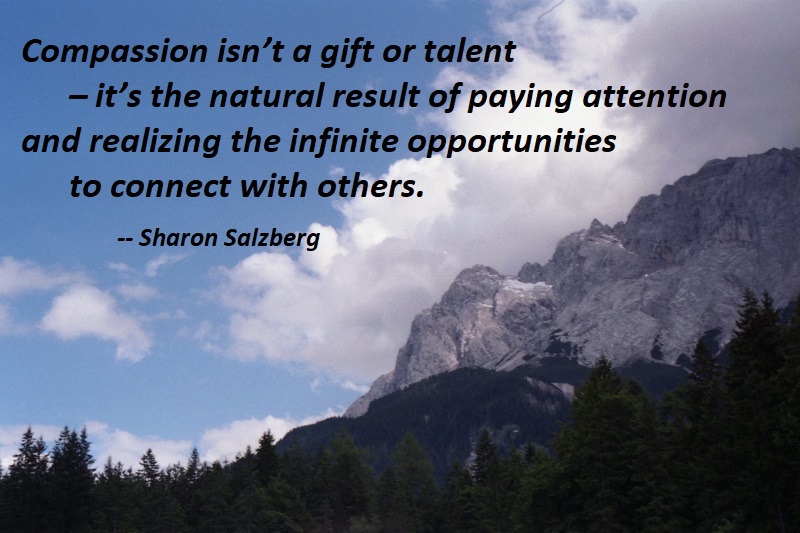
Compassion isn’t a gift or talent – it’s the natural result of paying attention and realizing the infinite opportunities to connect with others.
— Sharon Salzberg, Real Love, p. 293
Photo:Â Eibsee, Germany, July 17, 2000

Compassion isn’t a gift or talent – it’s the natural result of paying attention and realizing the infinite opportunities to connect with others.
— Sharon Salzberg, Real Love, p. 293
Photo:Â Eibsee, Germany, July 17, 2000
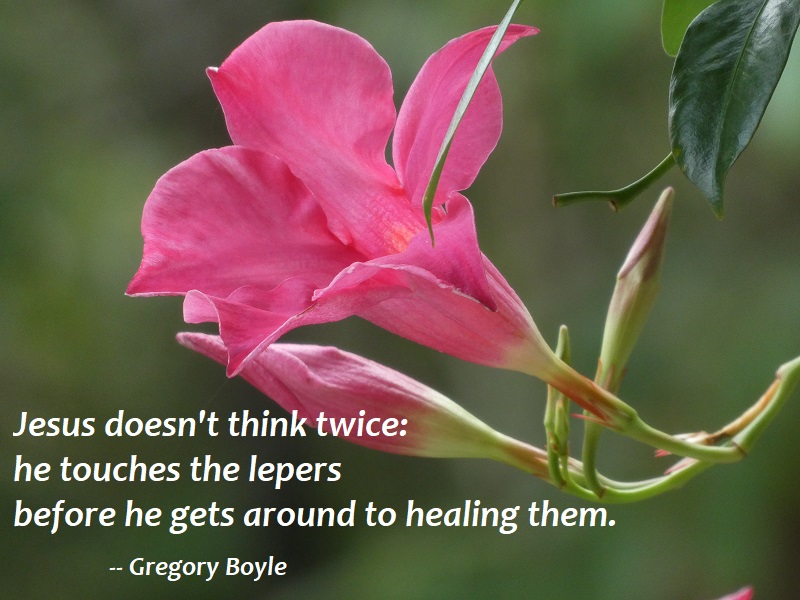
So we are encouraged to stand with the tax collector and the prostitute, the widow, orphan, and stranger, precisely because they are the judged, the scapegoated, the less-than, whose chances are taken away well before they are given. The principal cause of suffering for the leper is not an annoying, smelly, itchy skin disease but rather having to live outside the camp. So the call is to stand with them, so that the margins get erased and they are welcomed back inside. Jesus doesn’t think twice: he touches the lepers before he gets around to healing them.
— Gregory Boyle, Barking to the Choir, p. 166
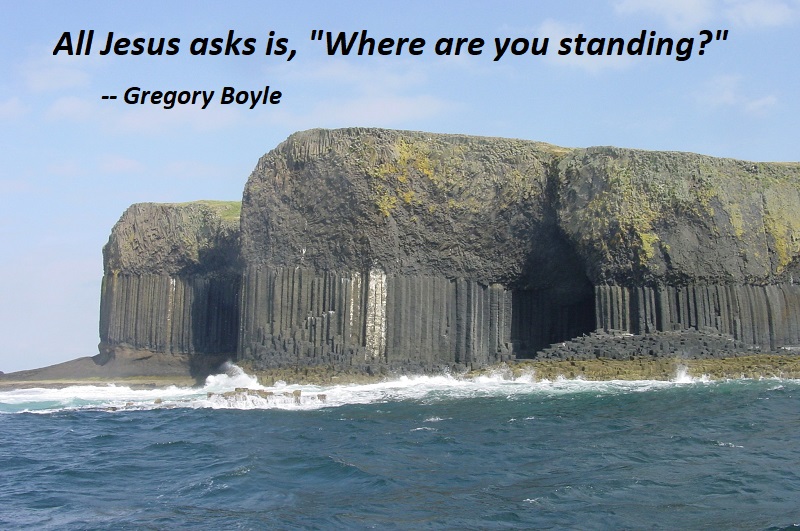
You actually abolish slavery by accompanying the slave. We don’t strategize our way out of slavery, we solidarize, if you will, our way toward its demise. We stand in solidarity with the slave, and by so doing, we diminish slavery’s ability to stand. By casting our lot with the gang member, we hasten the demise of demonizing. All Jesus asks is, “Where are you standing?” And after chilling defeat and soul-numbing failure, He asks again, “Are you still standing there?”
Can we stay faithful and persistent in our fidelity even when things seem not to succeed? I suppose Jesus could have chosen a strategy that worked better (evidence-based outcomes) — that didn’t end in the Cross — but he couldn’t find a strategy more soaked with fidelity than the one he embraced.
— Gregory Boyle, Tattoos on the Heart, p. 173
Photo: Staffa Island, Scotland, July 13, 2003
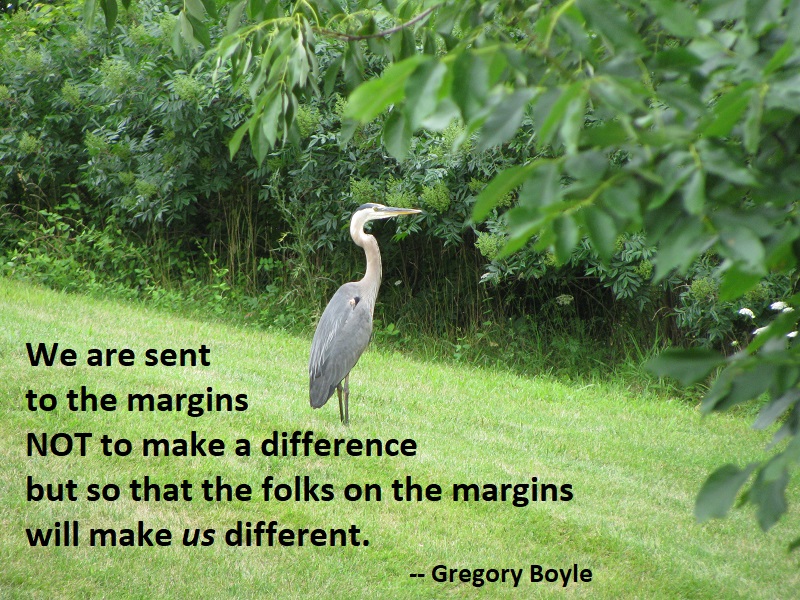
In the end, though, the measure of our compassion with what Martin Luther King calls “the last, the least, and the lost” lies less in our service of those on the margins, and more in our willingness to see ourselves in kinship with them. It speaks of a kinship so mutually rich that even the dividing line of service provider/service recipient is erased. We are sent to the margins NOT to make a difference but so that the folks on the margins will make us different.
— Gregory Boyle, Barking to the Choir, p. 165
Photo: South Riding, Virginia, July 13, 2013
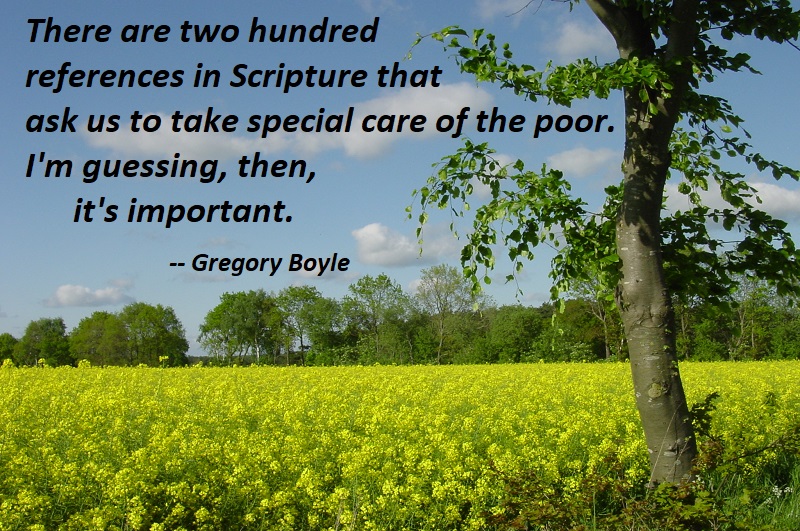
There are two hundred references in Scripture that ask us to take special care of the poor. I’m guessing, then, it’s important. It is this preferential care and love for the poor that sets the stage for the original program. It doesn’t draw lines — it erases them. It rises above the polarizing temperature of our times. It doesn’t shake its finger at anybody but instead helps us all put our finger on it. We could ask ourselves, I suppose, if God is conservative or liberal, but I think that’s the wrong question. Instead we should ask: Is God expansive or tiny? Is God spacious or shallow? Is God inclusive or exclusive? What are the chances that God holds the same tiny point of view as I do? Well, zero.
— Gregory Boyle, Barking to the Choir, p. 164
Photo: Wildeshausen, Germany, May 16, 2004
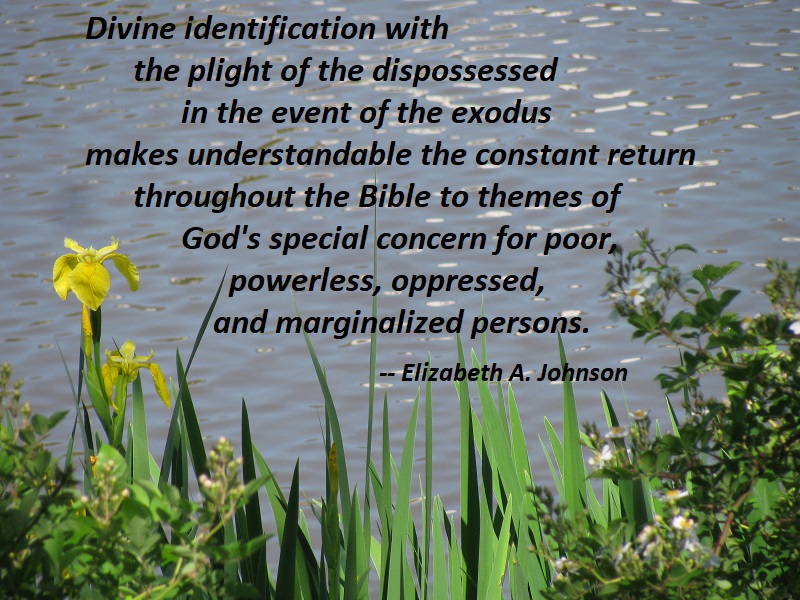
Divine identification with the plight of the dispossessed in the event of the exodus makes understandable the constant return throughout the Bible to themes of God’s special concern for poor, powerless, oppressed, and marginalized persons. Gracious and merciful, God acts to make a new future possible. Such compassionate concern also undergirds the great biblical ethic of hospitality: “You shall not wrong or oppress a resident alien, for you were aliens in the land of Egypt” (Ex 22:21); and more positively, “You shall love the stranger, for you were strangers in the land of Egypt” (Deut 10:19). The people liberated from slavery must act in like manner as the Holy One who delivered them.
— Elizabeth A. Johnson, Creation and the Cross, p. 38
Photo: South Riding, Virginia, May 15, 2019
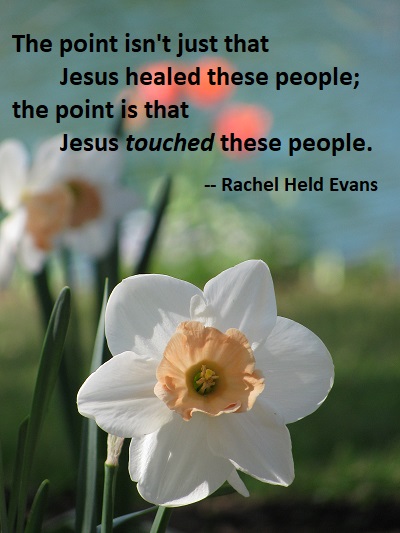
In all three stories, the point isn’t just that Jesus healed these people; the point is that Jesus touched these people. He embraced them just as he embraced other disparaged members of society, often regarded as “sinners” by the religious and political elite — prostitutes, tax collectors, Samaritans, Gentiles, the sick, the blind, and the deaf.
— Rachel Held Evans, Inspired, p. 184
Photo: Meadowlark Gardens, Virginia, April 3, 2012
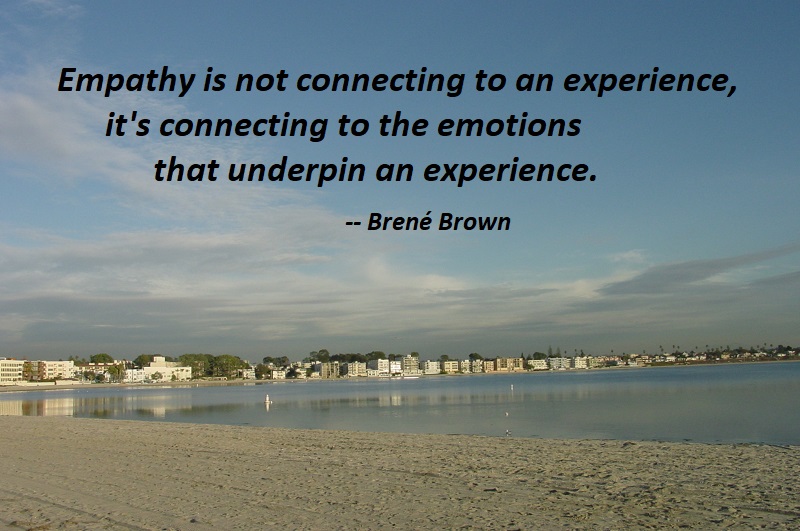
Empathy is not connecting to an experience, it’s connecting to the emotions that underpin an experience.
— Brené Brown, Dare to Lead, p. 140
Photo:Â Mission Bay, California, December 31, 2003
We are at our healthiest when we are most situated in awe, and at our least healthy when we engage in judgment. Judgment creates the distance that moves us away from each other. Judgment keeps us in the competitive game and is always self-aggrandizing. Standing at the margins with the broken reminds us not of our own superiority but of our own brokenness. Awe is the great leveler. The embrace of our own suffering helps us to land on a spiritual intimacy with ourselves and others. For if we don’t welcome our own wounds, we will be tempted to despise the wounded.
— Gregory Boyle, Barking to the Choir, p. 54
Photo: Rota, Spain, December 18, 2005
Finally, you have the opportunity to use your healed memories to offer compassion and support to those in need. When you forgive you become a model for those still struggling. They benefit from seeing people who have healed. You can serve as an example of what is possible. You show people through your example that forgiveness is possible.
— Fred Luskin, Forgive for Good, p. 74
Photo: South Riding, Virginia, October 30, 2018